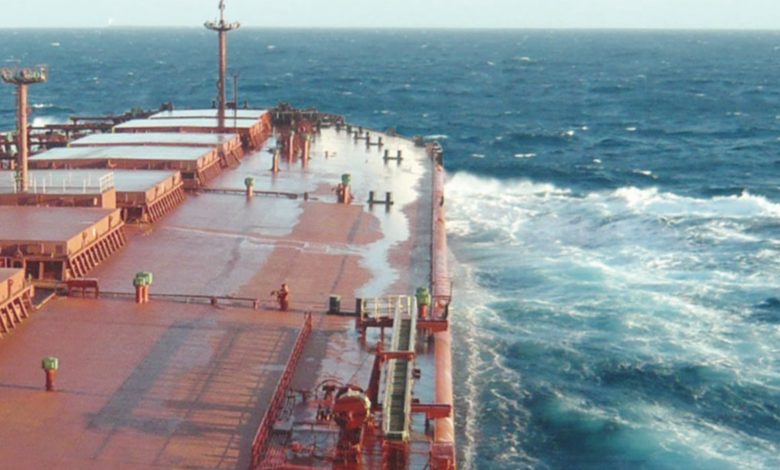The gods of the copybook headings, and the Dunning-Krueger effect

Few people reading this will know what a copybook is. They are seldom used now, but when Kipling (who was exceptionally sound on the psychology of shipowners) wrote his poem of that name, small children were taught handwriting by being given books with a heading on each page which the child was to copy out, longhand, until the child developed, after a few years, a fair cursive script. The heading to be copied was commonly a trite moral maxim, such as, “Stick to the Devil you know”, hence Kipling’s title.
The Dunning-Krueger effect is the serious academic name for the misplaced belief amongst the inexpert that they know more than they do. Most of us think that we are good drivers, and most of us think that we could fly an aeroplane, or run our country, just as well as those who have spent a lifetime to gain the skills that they use to fly an aeroplane or govern a nation. At any important football match, there will be thousands who know exactly what the player should do with the ball.
And every board of directors of a shipowning enterprise contains someone who knows what is going to happen.
Let’s try some copybook headings:
1. “If you are offered more than you have contracted to pay, for a ship that you have not yet paid for, always take the offer.” In the immortal words of David Schenk, of SSY, “Nobody ever went bust booking a profit”. Further, your ROI will be absurdly high, and the bigger fool than you, who is offering to acquire your future money-spinner, might be about to spend that money contracting a newbuilding.
2. “Some shipyards are better than others.” The better the ship in the first place, the less she will cost to operate, the higher her resale price and the happier her crew will be, meaning less off-hire and fewer accidents.
3. In the immortal words of Tim Huxley, of Mandarin Shipping, “If a ship is expensive in the first place, no amount of ‘financial engineering’ will make it cheaper in the long run.”
4. In the immortal words of Arthur Bowring of the Hong Kong Shipowners Association, “Nobody will pay more for a better commodity ship”.
5. “Just because we can” is never, never, a good reason for buying a secondhand ship; still less for contracting a new one.
6. “In every closing meeting for the sale of a ship, the sellers are happy to be rid of her and the buyers can’t wait to get their hands on her.” Just occasionally, such as, for example, where the buyer has a niche trade that the seller cannot enter (perhaps a cabotage trade), both parties might be right. On all other occasions, sale and purchase is a gambling transaction, between parties with equal access to information, and the broker’s 1% is the zero on the roulette wheel.
I think those are of general application. Now for Professor Dunning and Professor Krueger.
By assiduously crunching piles of data, we can learn a very great deal about what the world fleet is doing at this moment, and that is a new development. We can know almost as much about the immediate future, which is a great help to the charterer, and rather less of a help to the ship owner, who can no longer blithely say, ‘now trading’ when his ship is in dry dock, and so on.
But when it comes to the known unknowns of the demand side, we cannot hope to know the future direction of the world economy. Even the blitheringly obvious, such as the impact on trade by sea of China joining the WTO, managed to come as a surprise to the world’s shipowners and to the pundits who presumed to advise them. Better brains than ours, crunching data at the OECD, can only guess at what may come next. The unknown unknowns, like wars and pestilences, are as much of a mystery as they ever were, and, as discussed above, we have our own troubles with the unknown knowns.
It might be said that greater consolidation of shipowning, which is becoming evident, will have a calming effect on the shipping cycle. This I take leave to doubt. There is no part of our industry more consolidated, and possessed of more computing power, than the liner shipping business – and there is no part of our industry which has knocked the props out of its support mechanisms, and gone on to overtonnage itself, more furiously than liner shipping.
I think we can consign the End of Shipping Cycles Thanks to Big Data to the same trashcan as The End of History.
Splash will continue to chronicle the follies and vices of men and women of the shipping kind.
For the first two installments of Andrew Craig-Bennett’s shipping cycle trilogy, click here and here.

today you are spot-on Andrew. Couldn’t agree more.
Liner shipping was also partly a victim of market structure i.e. few large incumbents with own funding capacity and/or access to the capital market.
Next thing we knew, we were flooded by infographics about ulcvs and a PR race at twitter and the media in general. Pretty soon we had blond gals retweeting pics of 3E ships.
So much with the hype though, time is now for the market to restore some workable arrangement. Cannot be painless and it is not the last time it happens.
Ecosystems move in cycles [call it history] and Big Data can’t alter the mechanics of history, regardless how much consultants and firms want to create a new market [pretty much like cyber risk].
Thanks George (love the blondes retweeting pics of 3E’s!)
Shipping people (including their Bankers) have always had an affinity to “lemmings” and always will? Big Data may help the industry to manage effectively but but will never replace common sense and sound judgement based upon experience.